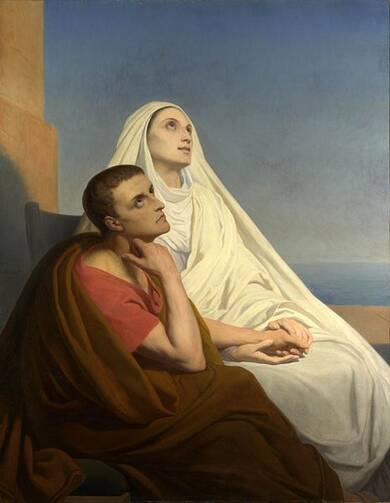Ross Douthat is not the only New York Times writer to hit upon some very Catholic themes. David Brooks's recent column turns to St. Augustine to reflect upon the path to personal knowledge:
The highest rung on the stairway to understanding is intimacy. Our master-teacher here is Augustine. As he aged, Augustine came to reject those who thought they could understand others from some detached objective stance.
He came to believe that it take selfless love to truly know another person. Love is a form of knowing and being known. Affection motivates you to want to see everything about another. Empathy opens you up to absorb the good and the bad. Love impels you not just to observe, but to seek union — to think as another thinks and feel as another feels.
There is a tendency now, especially for those of us in the more affluent classes, to want to use education to make life more predictable, to seek control as the essential good, to emphasize data that masks the remorseless unpredictability of individual lives. But people engaged in direct contact with problems like teenage pregnancy are cured of those linear illusions. Those of us who work with data and for newspapers probably should be continually reminding ourselves to bow down before the knowledge of participation, to defer to the highest form of understanding, which is held by those who walk alongside others every day, who know the first names, who know the smells and fears.









David, thanks for reading and reply. It's a good column indeed!